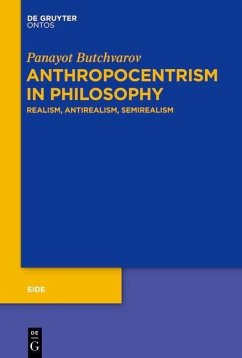Anthropocentrism in philosophy is deeply paradoxical. Ethics investigates the human good, epistemology investigates human knowledge, and antirealist metaphysics holds that the world depends on our cognitive capacities. But humans' good and knowledge, including their language and concepts, are empirical matters, whereas philosophers do not engage in empirical research. And humans are inhabitants, not 'makers', of the world. Nevertheless, all three (ethics, epistemology, and antirealist metaphysics) can be drastically reinterpreted as making no reference to humans.
Dieser Download kann aus rechtlichen Gründen nur mit Rechnungsadresse in A, B, BG, CY, CZ, D, DK, EW, E, FIN, F, GR, HR, H, IRL, I, LT, L, LR, M, NL, PL, P, R, S, SLO, SK ausgeliefert werden.


